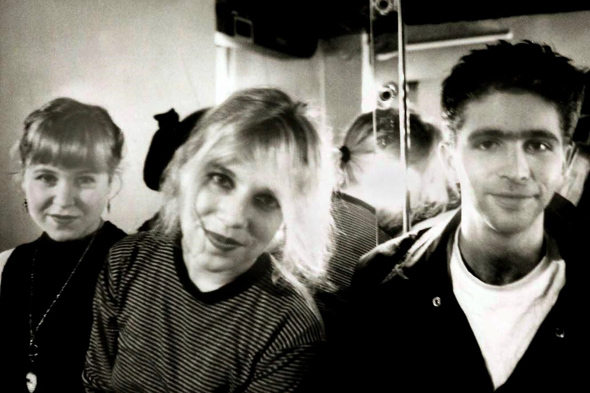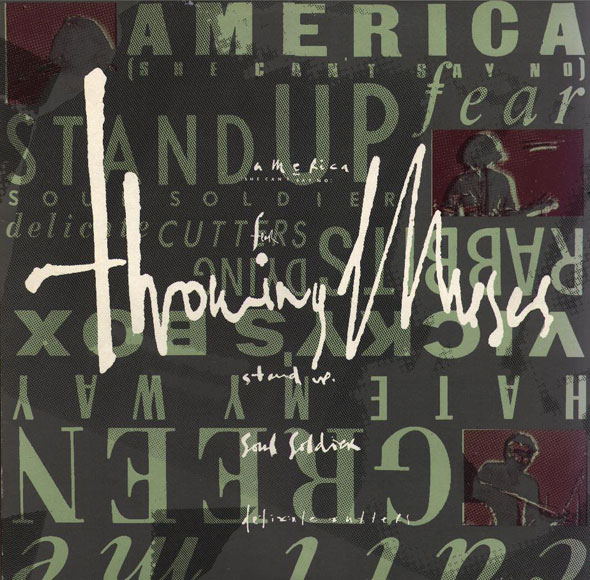A REVIEW OF WILLIAM D DRAKE - THE RISING OF THE LIGHT (ONOMATOPOEIA)
Everyone I’ve met who likes Cardiacs has LOVED music. Every single one. There is no such thing as a casual Cardiacs fan. They have the hunger on them. Music isn’t an optional extra, it’s the centre, the hub, the pivot around which everything else wheels. They get the shivers, they get the buzz. They don’t get Death Cab For Cutie from beside the till at BP before a long journey home to see the folks.
I’ve got to confess I’ve had my problems with Cardiacs in the past. Sometimes I’ve found their wackiness so teeth-gratingly irksome I’ve wanted to gnaw my feet off rather than listen to a minute more. It was so bloody wearisome, all that snickersnackery bouncing around. I wanted to put it under a blanket and sit on it. It had the same effect on me as Camel. Or Yes. Made me snarl. But recently I got roundly (and deservedly) berated on Facebook for dismissing a documentary on prog rock that someone had posted a link to. Pfft, not watching that, I smirked; it’s all codpieces and public school boys being pleased with themselves. Twattery that prizes ‘technical proficiency’, that chill passion-killer, above gawky inventiveness. Boy music. Clever-clever fancy footwork that does not ring my bell, no way, no how.
Which, behind the facetiousness, betrays a common-enough repulsion for anything that doesn’t conform to a class-conscious, post-punk directness; to an authenticity (whatever the fuck that means) which pays homage at the altar of down’n’dirty rock’n’roll by spurning silly time-signatures and mock-classical tomfoolery. Punk gobbed on music in 1977, so the story goes, and washed the streets clean of the degenerate, self-satisfied dross that the likes of ELP and Rush were wanking out over the album charts; freed us all to scorn the stomach-turning excesses of prog in favour of DIY attitude; got virtuosity stomped on by rough & ready’s size 12 DMs. Grrrwk: take that, velvet waistcoats! Sppplaf: take that, unnecessarily fiddly flute solo!
Well, the story is distorted rubbish. I was wrong about prog. Yes, it can easily be caricatured as indulgent wankery, but, as a savvy friend of mine said, it is actually as much about an attempt to find beauty as anything else. And that’s a quest worth following to the end of the line (even if it does involve whole symphony orchestras and unnerving facial hair). There’s nothing inherently pompous about being difficult; nothing gobworthy about ambition.
Cardiacs isn’t exactly prog, anyway. It’s been called pronk – a hybrid punk/prog beastie, combining prog’s proficiency with punk’s spikiness - which is going to have to do as a defining something, but there’s an anti-Cardiacs vibe at play in the press that is tied up with the anti-progism that’s been so evident in (un)critical thinking about music for the last few decades.
Nor is it boy music, not by any definition of the term that you care to make up on the spot. The audience for the Cardiacs-associated bands I saw last weekend was as gender-mixed (and enthusiastically engaged) a crowd as I have seen at a gig for years. Women musicians and fans abound in the Cardiacosphere. And a Cardiacs song which employs tricksy time-signatures that flick the rug out from under you just as you’re finding your feet in its patterns is going about the business of bending, breaking and re-making the rules in a contrary multi-coloured glory, not about proving how clever it is, as the most boyish of boy music seems intent on doing.
That story is wrong about punk rock, too; there was a good thick strand of fun and silliness to punk and its aftermath (think of Captain Sensible, if you must, but also of X-Ray Spex who were quite capable of being daft as well as furious) but somehow the Great Punk Creed that obliterated the cred of prog has managed to create a situation today where joyless fucks like Kings of Leon get lauded for their grittiness and the pogoing loons have been forgotten. How did worthiness win out over moshing? History is a peculiar business.
Of course Cardiacs’ music is clever. Of course it is fiddly. It is jagged. Silly. Playful. Roaringly scritchy. Stop-start-stop-go-go-GO widdliness to end all widdliness. It is, oh god, fun. It is jaunty. Jaunty. For fuck’s sake. A word that should make one and all wash their ears out with Pussy Galore. No leather kecks here. Nor cool, neither, not a drop of it. But what there is, is joy. And snatched beauty, so much better than the complacent here-it-is-on-a-plate kind. And songs that skitter hither and thither in wild abandon to make untidy girls in stompy boots and flowery dresses shake their hair on the dancefloor and laugh like maniacs. What the fuck was ever wrong with joy in pop music? When I stopped worrying about the whimsy and started feeling the noise, it all made sense. I got the scritchiness bug.
So to this: if you’ve never heard (of) Cardiacs and their tentacular side projects you have the chance to experience the record I am nominally reviewing here something like afresh. Virgin ears if not a virgin cultural perspective. William D Drake was a key member of Cardiacs for, oh, decades, and he has made a record this year with his new band which is as unlike Cults or Adele or Odd Future as is a giraffe. It’s not young, it’s not radical, it’s not provocative, it’s not innovative, it’s not ever going to be top of any pops, it’s never boring and it’s the very opposite of inoffensive (which isn’t, obviously, the same as being offensive) and it’s certainly not hip. In fact, you can be pretty sure that this is music is as unhip as anything you’ve ever encountered so far in your musical listening career.
Which is no bad thing. So let it go.
There’s an obvious connection in The Rising Of The Light to a distinctively English strand of Sixties pop, to songs such as ‘See Emily Play’ or The Village Green Preservation Society; here are those jocular organs, that mock-pomposity and wry delight in an aesthetic that is now doubly-archaic (the support band at Drake’s recent gig, Crayola Lectern, which includes ex-Cardiacs man Jon Poole among its members, played the Cardiacs’ only cover, that of The Kinks’s ‘Suzannah’s Still Alive’; they also played Robert Wyatt’s sublime ‘Sea Song’, so do, as they say, the math).
Don’t expect very much in the way of yer actual straightforward songs; not a lot of beginnings, middles and ends here. These are unfurling carpet rides of pieces, littered with snatches of hornpipes and jigs, which make sudden switch-backs from tremendous thumping keyboard tunes to howlingly naff fairground skirls, which in turn are interrupted by choral interludes belted out in absurdly over-blown but glorious trembling harmonies. There’s no casual conforming to expectations of what makes a song, which is all to the good, if you can haul yourself over the perkiness stumbling block and stop hoping for the easy comfort of a returning chorus.
‘Wholly Holey’ skips and hops from the beginning in a roil of oompahpahs. It’s quite ridiculous, really. And, look, there’s the falsetto and harmonies nicked from Queen’s A Night At The Opera, all lawns and lemonade, as English as raised eyebrows and politely furrowed brows. The elegiac ‘In An Ideal World’ has a melody-line to bring spring to frozen earth, wound through waves of rippling piano by a hurdy-gurdy (well, yes, of course).
My taste leaning more towards the stately than the jolly, I found myself skipping ‘Zeigler’ (which makes an interlaced pattern of too-pretty reels and chunks of wilfully awkward discordant piano) third time round. But Drake writes tunes and lines to make you ache, most delightfully in ‘Me Fish Bring’, which is quite, quite lovely. It’s a pastoral sentiment bomb, deploying clarinets and honey-sweet melodies and images of wafting smoke and lambs grazing in fields to thump the hell out of cynical old (or young) hearts. Oof.
For all the layers of reference, all the self-conscious playing with musics past and paster still and the grandiose, tongues-both-in-and-out-of-cheek choral tub-thumping, the album roots itself nicely with Drake’s voice and lyrics: he’s got a perfectly decent but down-to-earth voice and sings of cups of tea and jacket potatoes and the nicknames lovers give each other. Homeliness in the midst of bombast. How very - again - English.
This is music that has utterly abandoned the urge to now-ness. If you don’t find that refreshing and admirable, then do feel free to go hang with Tyler and his hipster nemeses. I don’t know much about Captain Beefheart or the Penguin Café Orchestra, some of the more obvious benchmarks I probably should be leaning on here. I’m not all that up on the post-punk that informed Cardiacs’ jagged freneticism either. I stood in the queue for Drake’s gig yesterday and all around me clever beautiful women were talking to be-T-shirted men about King Crimson and Brian Eno. Seriously. I felt a bit dim. If you absolutely must have a contemporary comparison, think of Sufjan Steven's utterly remarkable 'You Are The Blood', which has a similarily contrary attitude to genre and structure, pulls wholly disparate threads together yet does gorgeous so well. Course it doesn't sound anything like this.
So never mind the context: this is a simple plea for you to pin your ears back and listen. An appeal on behalf of the Cardiacs party to put aside prejudices and engage with what these musicians are trying to do, to make. That’s what it’s all for, isn’t it, this wordy stuff? To coax you into sharing the thrill. And now I get it. I GET IT. This music here is about beauty and joy and delight. It cares not for fashion or convention or status. It’s for people who eat their music whole.
You’d hate it.
Postscript: Beautiful, grinning, gentle, kaleidoscopically-talented, furiously energetic, fucking all-round lovely man and Cardiacs leader Tim Smith had a severe stroke in 2008 from which he is still recovering. In all likelihood, there will be no more Cardiacs. He is very much loved; there was a tribute album made last year to which the likes of Ultrasound, Katherine Blake, The Magic Numbers etc. contributed cover versions of his songs, the proceeds going directly to his care. If you want to check out his songwriting, there's a place to start.
(First published on Collapse Board)














